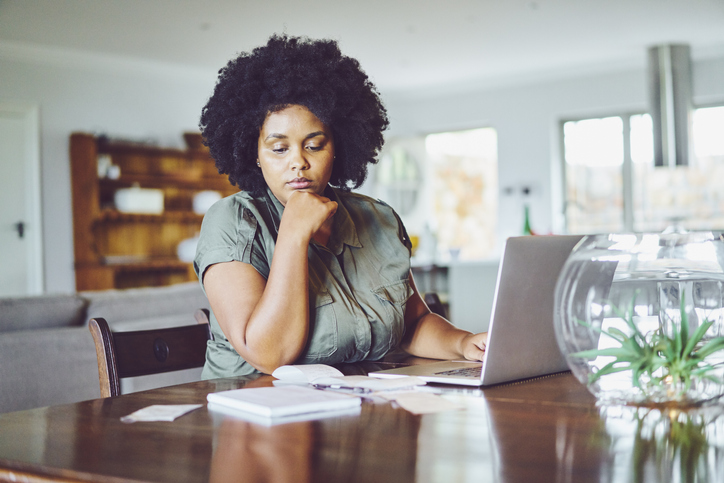
Source: Stígur Már Karlsson /Heimsmyndir / Getty
As the country braces for a potential second wave of coronavirus, having a rainy day savings fund is more important than ever. As of June, the unemployment rate in the United States was 11.1 percent and we still have yet to see the full impact of the pandemic on our economy.
“Savings gives you choices!” Pamela Capalad, Co-Founder and CEO of Brunch & Budget told MadameNoire. “If you have savings then you’re not forced to reach for a credit card. With all the economic uncertainty and rising unemployment rates at hand, you want to avoid racking up debt. It becomes a liability when you cannot repay the debt on time– which creates more financial problems.”
When it comes to establishing an emergency savings fund, there are varying schools of thought; however, a general rule of thumb is that you should save enough money to cover a half year of expenses.
“For most households, an adequate emergency savings fund is enough to cover six months’ expenses,” advised Greg McBride, Senior Vice President & Chief Financial Analyst at Bankrate. “For self-employed or sole breadwinners, a 9- or 12-month cushion may be needed. But that is a destination, not a starting point, and realistically it will take years to get there. The most important step is establishing the habit of saving, and paying yourself first via direct deposit or automatic bank transfer into a dedicated savings account is the best way for that habit to take form.”
Added McBride, “Start by setting up a direct deposit from your paycheck into a dedicated savings account. That way, it happens automatically. Next, track your spending against your net income and at month-end, if there is a surplus, this money can be pushed into savings as well. This gives you a second bite at the savings apple. Finally, earmark any unexpected income – whether tax refunds or cashback credit card rewards – and any savings from coupons and rebates for your emergency cushion.”
In addition to having a savings plan, Capalad also recommends tracking your savings efforts.
“Setting up a system to track your savings is a powerful act of self-care during the current crisis. I’ve been a financial advisor for many years and one of the best pieces of advice I can give is, ‘If you don’t create a plan for your money, someone else will,” said Capalad. “The Urgent/Important Spending Matrix is a great measuring tool for your savings; it allows you to think about your spending based on what matters to you and not a bunch of ‘shoulds.’ There have been studies done that show we literally think of our future selves as another person, so it makes it easy to push it aside. It doesn’t feel urgent. We know the things in this quadrant are theoretically important to us, but it’s much easier to allow ourselves to get distracted by the next shiny thing.”
In what ways have you adjusted your savings strategy as a result of COVID-19?









